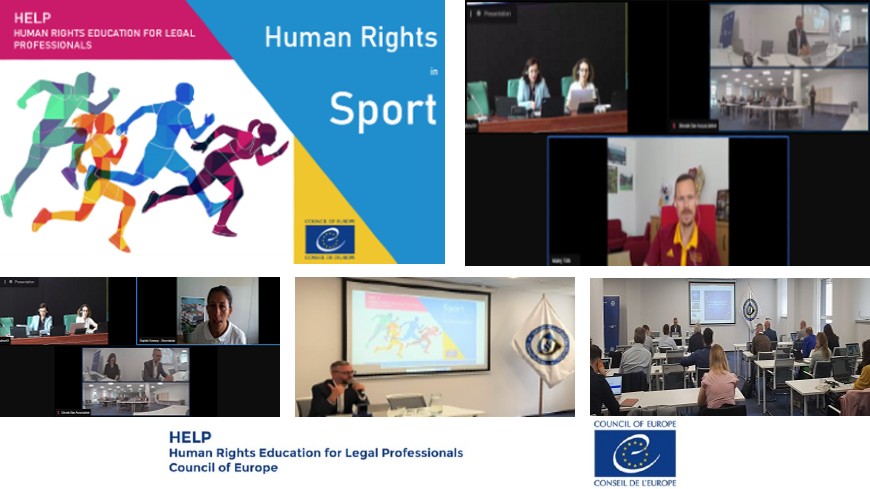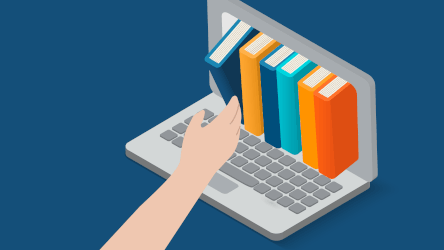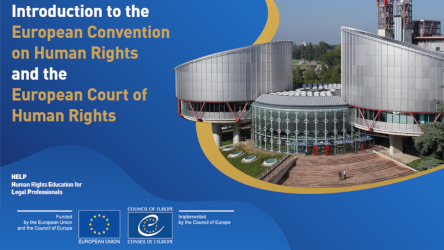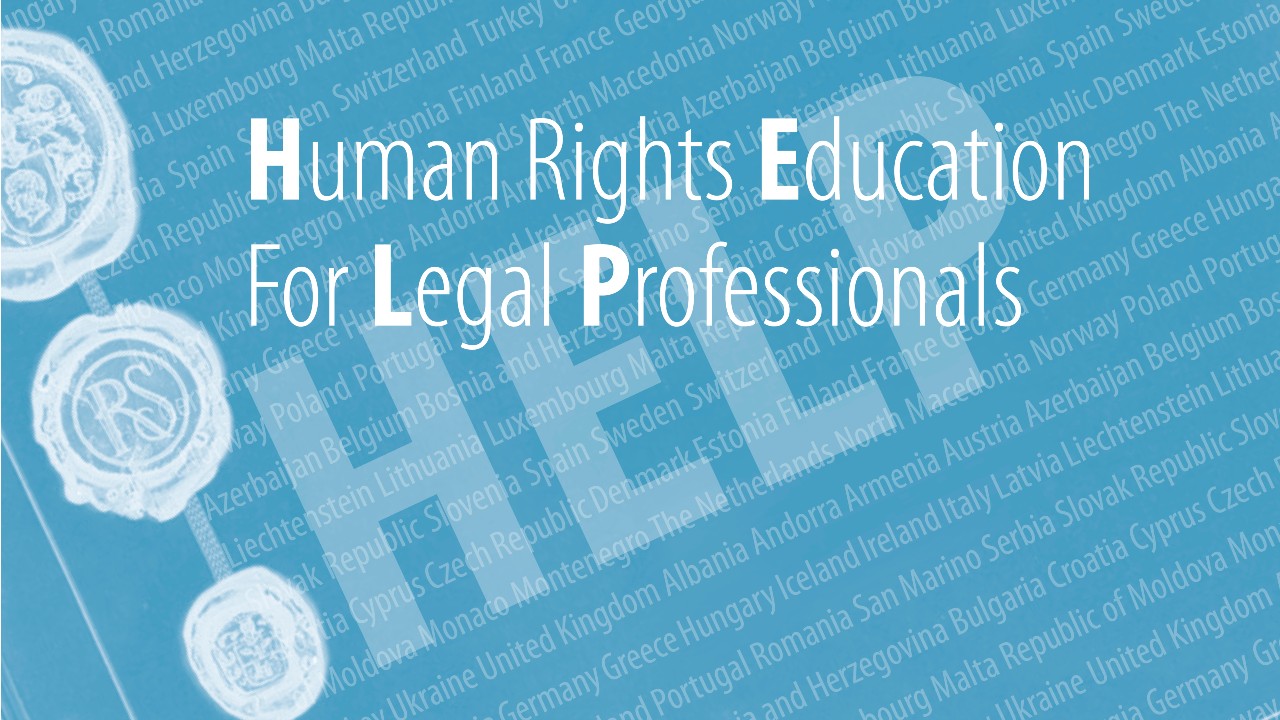On Tuesday 17 May 2022, almost 30 participants from Slovakia gathered for the launching event of the Council of Europe HELP course on Human Rights in Sport. This event illustrates the strong ambition of the Council of Europe, its Sport Division and its Human Rights Education for Legal Professionals (HELP) Programme, to promote, in Sport and through Sport, Human Rights.
The online launching event was opened by Eva Pastrana, Head of Justice and Human Rights Training Division and Ján Kutan, Member of the Presidency of the Slovak Bar Association who both warmly thanked all the participants for their presence and interest in this course. Eva Pastrana also underlined the importance of sport and its repercussions in our daily, social, and economic lives, explaining both the relevance of these issues as well as the already visible success of this Council of Europe course on the self-learning HELP platform (already 1,700 users, a third of whom have already achieved it successfully).
Sophie Kwasny, Head of Sports Division of the Council of Europe, also addressed all the participants, (specialised lawyers, members of the Slovenian Ministry of Sports, members of the national anti-doping agency etc.), to present the mission of the CoE Sports Division and key features of related CoE Agreements and Conventions: Enlarged Partial Agreement on Sport (EPAS) as well as Conventions on Anti-doping, Manipulation of sports and Safety, Security and Service.
Then, the participants could benefit from keynote speeches by Martin Maisner, Lawyer and Arbitrator, specialist in the field of alternative dispute resolution and sports law, and Matej Toth, Olympic Games and World Championships Gold medalist, Slovak Athlete of the Year. By sharing their knowledge and personal experiences, they illustrated very concretely the significance of the course and its content.
Ana Medarska-Lazova, Deputy Head of Justice and Human Rights Training Division, then provided an overview of the HELP Programme of the Council of Europe and its HELP online platform that includes a catalogue of 40 courses on human rights.
Finally, Miroslav Chlipala, HELP course tutor, briefly exposed both the content of this course and the provisional calendar of sessions and learning. The course tutor also stressed the importance of regular and assiduous follow-up of the course, to really understand all the issues around sport and its values (anti-doping, right to a fair trial in sports arbitration, security of sports events).
The course has 9 modules:
- Introduction
- Sports arbitration and litigation – Fair trial (Art. 6 of the European Convention on Human Rights)
- Life and physical integrity (Art. 2, 3 and 4 ECHR)
- Liberty and Security (Art. 5 ECHR)
- Privacy, Freedom of expression and assembly (Art. 8, 10 and 11 ECHR)
- Prohibition of discrimination
- Anti-doping and human rights
- Sports manipulation and human rights
- Spectators and safety and human rights
Once the Slovakian national version of the course be piloted, it will also be made available in the HELP platform for self-learning.
The Council of Europe hopes other countries will follow contextualizing this key HELP course to their national legislation and practice.
The version of the course (requiring some 8 e-learning hours) can also be taken for self-learning in the HELP online platform with the possibility of obtaining an individualized and digital “statement of accomplishment” upon completion.







